Winnie Madikizela-Mandela, Activist And Ex-Wife Of Nelson, Dead At 81
The South African civil rights icon was known as "The Mother of the Nation."

South African civil rights icon Winnie Madikizela-Mandela, who fought against apartheid in her country with her former husband Nelson Mandela, died Monday. She was 81.
Mandela died in Johannesburg after "after a long illness, for which she had been in and out of hospital since the start of the year," her spokesman Victor Dlamini said in a statement. She was known as "The Mother of the Nation" in South Africa for her prominent role fighting apartheid and her lifelong commitment to civil rights activism that lasted over three decades. Her work often led to run-ins with the law as well as imprisonment.
She was married to Nelson Mandela, the anti-apartheid revolutionary, who was South Africa's first black leader and the first to be elected in a fully representative democratic election. Following a much-publicized divorce, she continued to work in government and kept a high profile until her death.
Here is what you need to know about her:
She Was Political As A Child
Nomzamo Winifred Zanyiwe Madikizela was born in Pondoland on Sept. 26, 1936. Even as a child, she saw racial disparities in the world. In her 1984 autobiography,“Part of My Soul Went With Him,” she remembers learning about history through white people.
“We had our textbooks, naturally written by white men, and they had their interpretation,” she wrote. “There is an anger that wakes up in you when you are a child and it builds up and determines the political consciousness of the black man."
Meeting Nelson Mandela
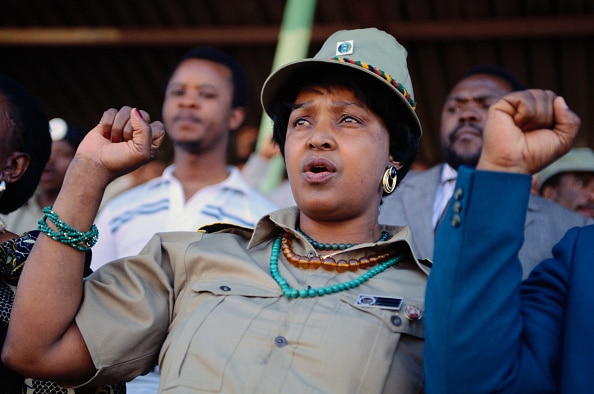
She received her social-work degree from the Jan Hofmeyr School in Johannesburg. Shortly after, she met Nelson Mandela. Their first date was lunch at an Indian restaurant.
"I was madly in love with him," she later remembered.
Apartheid Protests
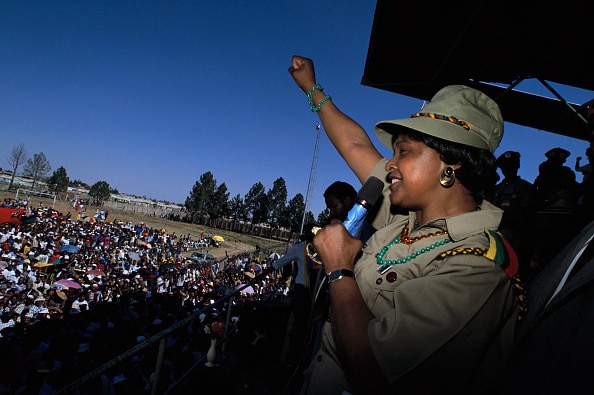
Winnie and Nelson Mandela soon began protesting apartheid in South Africa. Her first imprisonment happened in 1958, when she joined mass protests against laws that limited black women’s mobility. She was propelled into the international spotlight in the 1960 Sharpeville Massacre, in which police killed dozens of unarmed protesters. Over the next several years, she would have regular run-ins with the law, including being arrested, harassed and placed in solitary confinement.
“My whole body was badly swollen, I was passing blood,” she wrote in her autobiography about being put in solitary confinement in 1969. “The whole experience is so terrible, because I had left little children at home in bed and I had no idea what had happened to them.”
Legal Issues
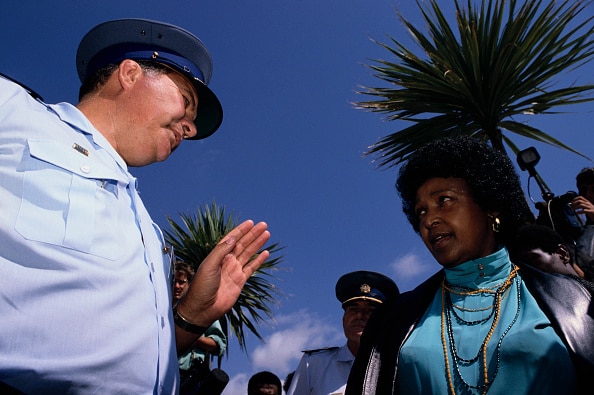
In 1991, she was sentenced to six years in prison for the kidnapping and beating of four young men in 1988. A judge found her guilty of kidnapping and being an accessory to the assaults, as The New York Times reported. Mandela was accused of plotting with other defendants to kidnap and beat four young men to discredit a local adversary. She maintained her innocence and claimed that she was not at home when the incident happened. However, the judge felt that the incident could not have happened without her go-ahead.
"We have been found guilty by the media," she told reporters. Her husband supported her as well. "I have never believed that she was guilty of assaulting anyone," he said. "Application for appeal has been filed and I'm advised it should succeed. I trust that soon her name will be cleared completely."
She would face other legal issues in her life, including being convicted on fraud convictions and being charged of theft.
Private Life
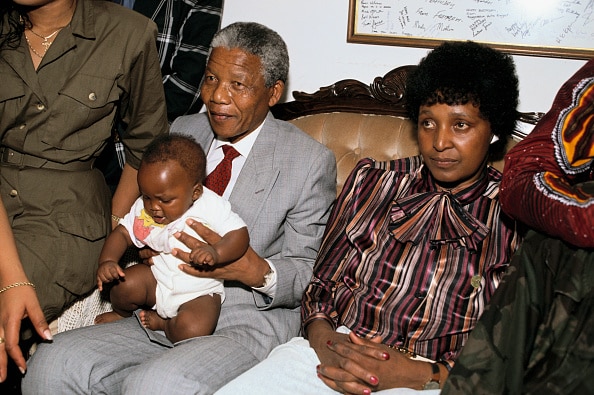
Nelson and Winnie divorced in 1992 after 33 years of marriage. Nelson was imprisoned for most of their marriage at Robben Island. Despite the separation, he maintained that he still had affection for her.
"My love for her remains undiminished," he said in a press conference. "In view of the tensions that have arisen owing to differences between ourselves on a number of issues in recent months, we have mutually agreed that a separation would be best for each of us."
The publication cited Winnie's legal issues as well as her rumored affair as reasons behind the split. "I was the loneliest man during the period I stayed with her," he said in court during his divorce proceedings, according to SF Gate.
The couple had two children together.
Legacy
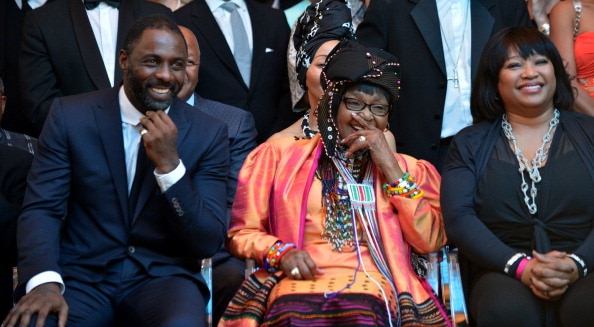
Following the divorce, Madikizela-Mandela continued to work in politics, being a prominent member of the African National Congress. She also continued to speak out about the corruption of government and the need for change in leadership.
"It is time for change of leadership...Surely the remedy is that new blood must take over, and we hope that that new blood will take the mantle from us and run the last mile of total freedom," she said in an interview with The Africa Report in 2017.
Archbishop Emeritus Desmond Tutu, another key figure in South African activism, shared what her legacy meant to the nation and social protest following news of her death.
"She refused to be bowed by the imprisonment of her husband, the perpetual harassment of her family by security forces, detentions, bannings and banishment. Her courageous defiance was deeply inspirational to me, and to generations of activists," he said.
[Photo: Getty Images]
























